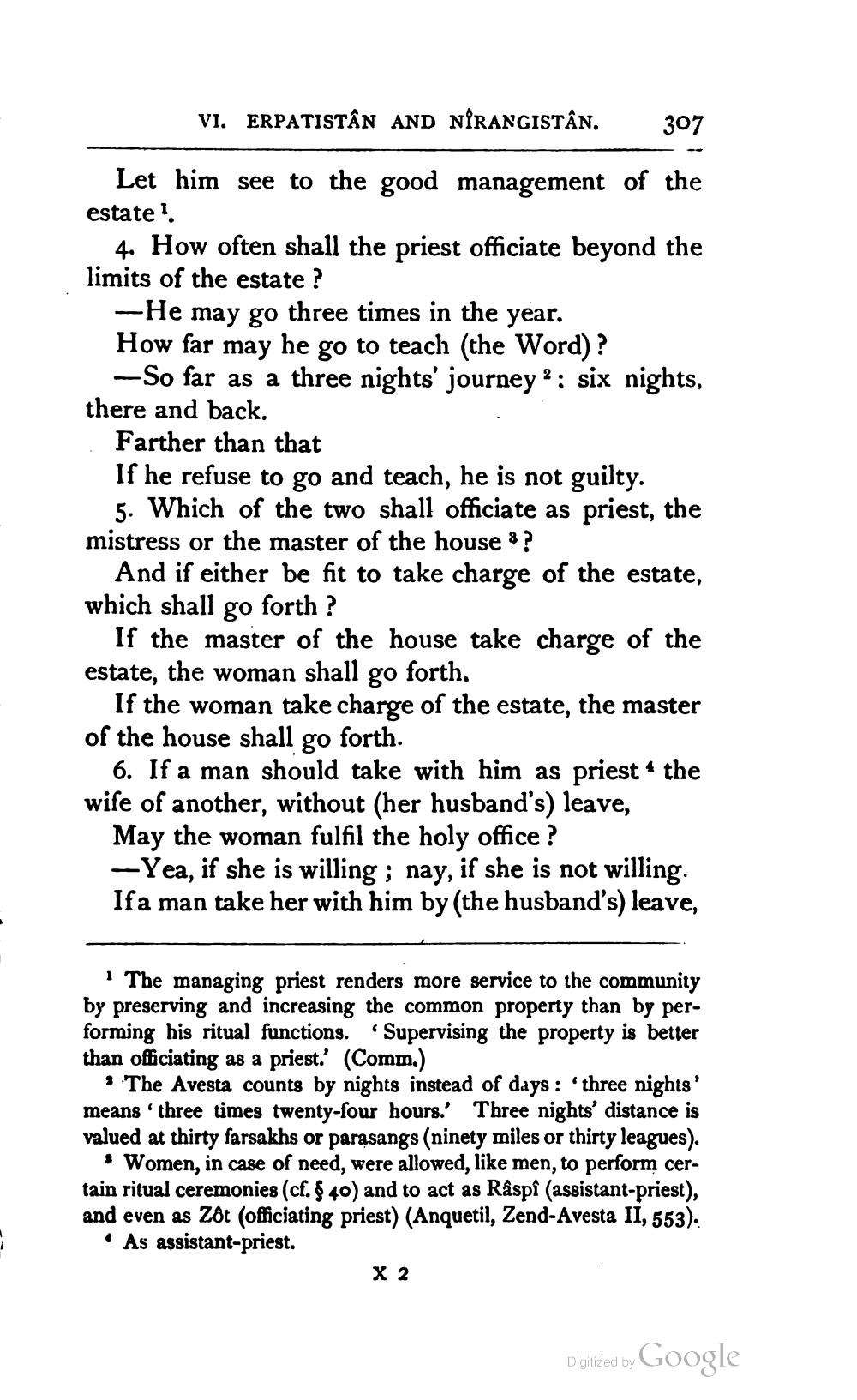________________
VI. ERPATISTÂN AND NÍRANGISTÂN.
307
Let him see to the good management of the estate
4. How often shall the priest officiate beyond the limits of the estate ?
-He may go three times in the year. How far may he go to teach (the Word) ?
--So far as a three nights' journey ?: six nights, there and back.
Farther than that If he refuse to go and teach, he is not guilty.
5. Which of the two shall officiate as priest, the mistress or the master of the house $ ?
And if either be fit to take charge of the estate, which shall go forth ?
If the master of the house take charge of the estate, the woman shall go forth.
If the woman take charge of the estate, the master of the house shall go forth.
6. If a man should take with him as priest the wife of another, without (her husband's) leave, May the woman fulfil the holy office ? -Yea, if she is willing ; nay, if she is not willing. Ifa man take her with him by (the husband's) leave,
The managing priest renders more service to the community by preserving and increasing the common property than by performing his ritual functions. "Supervising the property is better than officiating as a priest. (Comm.)
• The Avesta counts by nights instead of days : 'three nights' means three times twenty-four hours.' Three nights' distance is valued at thirty farsakhs or parasangs (ninety miles or thirty leagues).
• Women, in case of need, were allowed, like men, to perform certain ritual ceremonies (cf. $ 40) and to act as Råspî (assistant-priest), and even as Zôt (officiating priest) (Anquetil, Zend-Avesta II, 553). • As assistant-priest.
X 2
Digitized by Google




